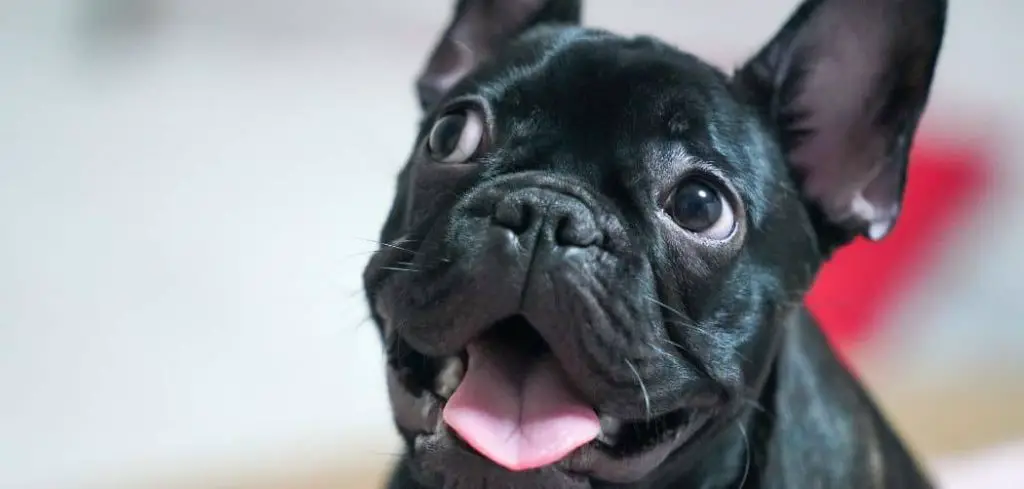When your dog starts panting excessively and behaving strangely, it can feel alarming and confusing.
These signs often point to deeper issues—ranging from anxiety and illness to toxic exposure or neurological concerns.
We outline the common causes of a dog panting and acting weird, what you can do at home, and when to seek veterinary help.
Dog Panting and Acting Weird — Why It Happens
Panting paired with odd behavior is often your dog’s way of signaling that something’s not right internally or emotionally. The causes may include stress, gastrointestinal discomfort, seizures, toxin ingestion, or even underlying health problems like liver disease or cognitive dysfunction.
These signs may emerge suddenly or build over time, often leading to restlessness, confusion, and disorientation.
Paying close attention to when and how these symptoms appear can help pinpoint the issue.

Dog Panting and Acting Weird: Common Causes
Anxiety or Panic Episodes
Dogs under extreme stress may not just pant — they can act very out of character.
An anxious dog may pace, whine, hide, or become suddenly clingy. They may also seem hyper-alert, bark excessively, or ignore commands.
Panting is one of the body’s immediate responses to stress, often paired with trembling or lip licking.
Triggers include thunderstorms, loud noises, separation from their owner, or even internal fears we can’t see.
Read more: Dog Panting and Not Eating (What’s going on?)
Nausea or Gastrointestinal Upset
An upset stomach can cause more than just vomiting — it may also lead to odd behavior and panting.
A nauseous dog might swallow repeatedly, lick their lips, pace restlessly, or act strangely withdrawn.
Causes range from dietary indiscretion to more serious issues like pancreatitis or intestinal blockages.
Because dogs can’t explain nausea, they often act restless or unusually clingy while trying to get comfortable.
Neurological Disorders or Seizures
Strange behaviors and panting can signal a neurological episode.
Dogs experiencing focal seizures may pant, stare into space, or show bizarre movements like chewing at the air or snapping.
These episodes might last a few seconds to several minutes and often leave the dog disoriented or exhausted afterward.
If the behavior repeats in cycles or includes collapse, tremors, or confusion, a neurological cause is likely.
Liver Disease or Toxin Exposure
Toxins or liver dysfunction can cause odd neurological signs along with panting.
The liver filters toxins from the bloodstream—when it’s compromised, behavior changes like pacing, disorientation, or even aggression can appear.
Dogs may drool excessively, stare blankly, or seem lost in familiar environments.
Toxins like xylitol, grapes, certain medications, or rodenticides can act rapidly and require immediate care.
Cognitive Dysfunction Syndrome (Dog Dementia)
In senior dogs, panting combined with strange behaviors may be a symptom of cognitive dysfunction.
Disorientation, pacing, staring at walls, nighttime restlessness, and changes in social behavior are common.
These symptoms typically worsen over time and may fluctuate throughout the day.
Dogs with dementia may forget familiar routines or react oddly to normal stimuli.
Pain or Physical Discomfort
Pain—especially internal—can cause dogs to behave in unexpected ways.
A dog in pain may pant, pace, or refuse to lie down comfortably. They might act clingy, avoid touch, or hide in unusual places.
Injuries, abdominal issues, dental pain, or orthopedic problems can all lead to strange behavior.
Pain may also heighten anxiety, amplifying odd symptoms.
What to Do If Your Dog Is Panting and Acting Weird
Start by calmly observing your dog’s behavior. Remove any immediate stressors such as loud noises, unfamiliar guests, or overwhelming environments.
Make sure they have access to fresh water, a cool space, and minimal distractions. Do not attempt to physically restrain or scold them.
Check for visible injuries, unusual swelling, or signs of poisoning like drooling, tremors, or vomiting.
If your dog is acting confused, pacing endlessly, or displaying uncoordinated movements, try to video the behavior to show your vet.
Keep a log of episodes — note timing, triggers, and how long they last. Even small details can help with diagnosis.
If this behavior is new or growing more intense, reach out to your vet for guidance.
When to Call or Visit Your Vet
Any time your dog shows sudden behavioral changes, it’s best to check in with your vet.
Seek immediate help if the behavior includes collapse, vomiting, seizures, inability to walk, or extreme disorientation.
Other red flags include pale gums, rapid heart rate, shallow breathing, or uncontrolled shaking.
If your dog’s behavior seems neurologically strange or continues for more than a few hours, don’t wait.
Senior dogs or those with chronic conditions should also be evaluated quickly when new symptoms appear.
Read more: Dog Panting and Acting Nervous (What’s causing the strange behavior?)
Key Takeaway
Dog panting and acting weird is never something to brush off. It’s often a clear message that something is wrong—whether it’s emotional distress, internal pain, or a serious health issue.
Take the time to observe, document, and respond calmly. And when in doubt, your veterinarian is your best resource.
Early intervention is key to making sure your dog gets the help they need to feel like themselves again.
